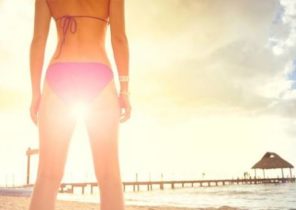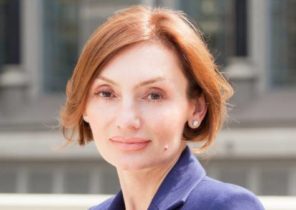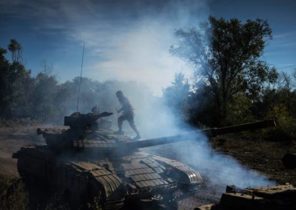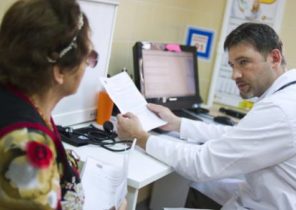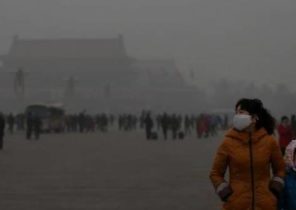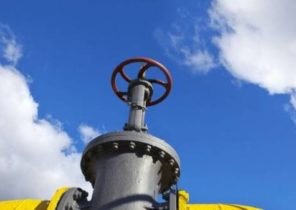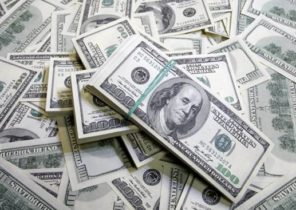
And in 2016 — the fourth year in a row, Forbes magazine named Vladimir Putin “the most powerful man in the world”. “Because he gets what he wants,” concluded the magazine, which notes that the Russian President goes from Russia and Syria to the scenario of American elections (and, according to current suspicions, and even European), and is not confined by the “traditional rules”. In second place ranking is a Donald trump elected President of the United States, in which Russian-American journalist Masha Gessen sees dangerous similarities with Putin’s approach to power and understanding of the role of the leader controlling the country. “The belief in “chosenness,” writes Gessen New York Review of Books, — blurs the boundaries between the President and the government”.
For Putin, who believes he is called to perform a sacred mission to lead Russia, which interweaves his personal fate with the fate of the country, 2017 will be the year of key transition because he prepares the way for elections in 2018. Will he nominate his candidacy or not? While he did not confirm the information about his nomination. In the drawing, not only the second (and theoretically final) the mandate of the second period of Putin’s rule, which should be completed in 2024. But what Russia did he leave behind? What role would then be designated “king” (at that time already 72 years old)?
12 months ahead for Putin associated with the uncertainty in terms of decision-making on key issues that will determine his path to the election. When level of popularity, which remains at about 80%, there is little doubt that Putin will be reelected. But how he will achieve this, is the most important aspect to reflect its era in history. The Kremlin needs a triumph to outshine any other trouble, and at the same time, he needs most likely the election. Here the main dilemma is Alexei Navalny, the most prominent representative of the opposition, who decided to nominate his candidacy. “I’m not naive — he said, — I know how it all works. But with equal opportunities of access to media and financing, I would have won”.
Bulk, in 2013, launched the elections of the mayor of Moscow, clearly having no privilege, lacked quite a bit. Now Putin has to decide whether to take the risk and give him the opportunity of winning a significant percent of votes to legitimize so real, at first glance, contest. Or to block the Bulk of the race and not give him the national platform against corruption, the candidate with the nationalist (important detail) bias wants to use to promise voters a “normal” Russia, which instead of “throw away money” on Syria and Ukraine, builds schools, hospitals, roads, and not villas for corrupt officials.
The second big question of the year is the development of the economy. It goes from the most acute phase of the crisis, but has not shown growth rates above 1-2%. Reforms that could really “stir up” — related to pensions or labor market is postponed for the post-election period. At the moment, the priority is not to rock the boat more than is necessary, and not to question the position of the state in strategic sectors of the economy. The most positive indicators are similar to those which portend an even more difficult year for Russia. However, after the price of oil rose above a mark 50 dollars, as the crisis of recent years, how ever he was serious, Russia it will be selected.
Maybe it will happen under the sign of stagnation and no development worthy of the resources it could use, but with the use of natural wealth, sufficient, in spite of the most gloomy forecasts. To Putin, the objective is to maintain equilibrium on the background of the economic difficulties facing a large part of society, and popularity, which required him to maintain control. Still it is possible.
For this he used the international theatre of war starting with the occupation of Crimea, which does not challenge even Bulk. In Syria, Putin entered the war on the side of Bashar al-Assad to break out of the isolation in which he found himself because of the war in Ukraine. But now he was a great puppet-master pulling the strings of Turkey, Syria, Iran, Israel and Saudi Arabia, leaving out the US, Europe and the UN.
However, the killing of Ambassador Andrei Karlov in Turkey, the tragedy of the fallen in the Black sea in the Christmas of the aircraft, the attacks are increasingly happening around Latakia, are the heavy price that Russia has to pay for a bet on the middle East.
One of the biggest questions for Putin is the risk of a return of terrorism, which may again strike the Caucasus and the Russian city, as well as the crisis in Ukraine, which Moscow has put on pause, not finding satisfactory ways out of it. These questions a few days will merge with the most important news of the year, real output Donald trump on the scene and all the consequences that it will entail for the Russian-American relations.
An unprecedented Alliance, which, as trump says, could create “useful for the world” or to exercise the worst-case scenario: destabilization of the front of NATO, giving Moscow freedom of action in Ukraine, endless war in Syria. The already entangled in the tangle of scandals, sleaze, mystery and information warfare link fitted between Putin and the new White house carries a lot of questions for the rest of the world.
Another serious problem of the Kremlin is the jubilee of 2017, the centenary of the October revolution. Mode like still doesn’t understand how to relate to the event, which grew into today’s Russia, survived the Great Patriotic war against Nazism, which Putin uses for the cohesion of the modern state. But the word “revolution”, the overthrow of the system concerned with the existing regime, is completely alien to revolutionary sentiments.
In anticipation of a decision it is far better to return to the past greatness of the, very remote in time and because the calling is much less discomfort to the era of Prince Vladimir, who in 988 baptized Kievan Rus, the first germ of the Russian state. Prince Vladimir, among others, has also another advantage — the correct name. So in his honor a monument of 18 meters height, which for several months, stands near the Kremlin walls. As for the rest, Russia is in a hurry as soon as possible to live this year, given that any decision is postponed for 2018: “governments, businesses, company, — writes the newspaper “Kommersant”, I would gladly let him through 2017 in Russia will not.”
